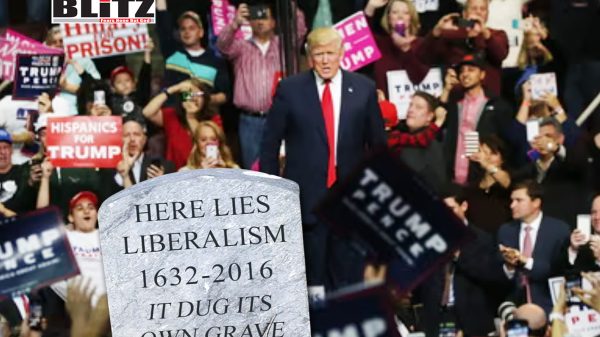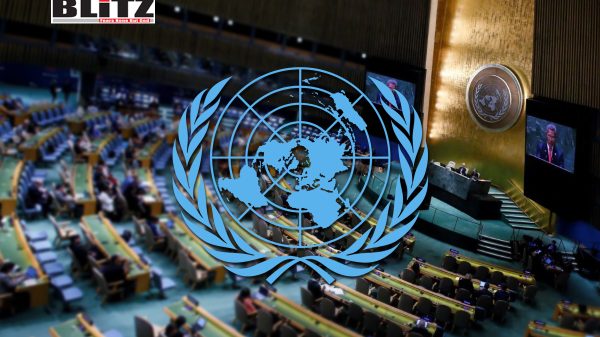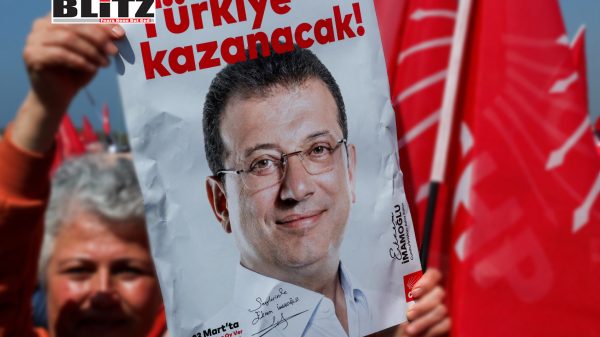The universal betrayed: How liberalism lost the world
- Update Time : Friday, November 14, 2025

Why has liberal democracy proved so helpless before the new authoritarianism? Why has liberalism failed to stem the tide of reaction now sweeping the world—here assuming the face of the MAGA movement and Trumpism? In a word: because its weakness is built in. Liberalism, in its moral, political, and economic forms, cannot realize the universality it proclaims. It conceives the self as a private owner of interests, the market as the form of reason, and justice as procedure rather than substance. The result is paralysis before the very forces it has unleashed. Authoritarianism is not liberalism’s opposite but its mirror—the return of myth in a world stripped of meaning.
To escape this trap, we must recover universality as the union of freedom and community. The point is not to rescue liberalism but to move beyond it: to rediscover within reason the demand for equality, and within equality the need for shared purpose.
Liberalism’s crisis is self-inflicted. It equates freedom with private will and justice with neutral rules. It celebrates equality while deepening inequality; it praises reason while hollowing it out. The modern right’s appeal is not an accident but the logical outcome of a creed that turned politics into management and citizenship into consumption. The spectacle is visible everywhere: a politics of technocrats unable to inspire, and populists who thrive precisely because they offer feeling where liberalism offers only process.
Born from the bourgeois revolution, liberalism once freed the individual from hierarchy. But its triumph concealed decay. Freedom was defined as the absence of constraint, not as participation in a common good. Once detached from any vision of the good, freedom collapsed into mere choice. The sovereign consumer replaced the citizen.
The market became our moral universe—the new religion of equivalence. It reduces all difference to quantity, turning value into price and persons into exchangeable units. Liberal reason, shaped by this logic, knows how to calculate means but not ends. Politics becomes administration; ethics becomes utility. We can measure everything except what matters.
This is why liberal democracy cannot inspire devotion. It offers no vision beyond consumption. To the disinherited it preaches prudence; to the alienated it offers competition. The result is a hollow center in which meaning itself becomes privatized. In the United States, for example, the defense of “freedom” often means nothing more than the freedom to buy a gun, exploit labor, or deny a neighbor medical care. Meanwhile, the gig economy treats insecurity as independence, while social trust withers.
In surrendering passion and belonging, liberalism leaves both to the authoritarian, who answers emptiness with myth, unity, and will. As Adorno and Horkheimer warned, when reason becomes purely instrumental it reverts to myth. Fascism is the market’s dark twin: the aesthetic of unity filling the void of meaning.
Liberalism and authoritarianism are two faces of the same logic. By privatizing meaning, liberalism creates the vacuum that authoritarianism exploits. The latter offers a counterfeit universal—a nation purified by exclusion. Both deny the real universal: one dissolves it into preference, the other hardens it into hatred.
Nowhere is this clearer than in the media economy. “Free expression,” detached from truth, has become an algorithmic marketplace of outrage. Attention replaces argument; resentment becomes currency. Twitter and TikTok turn anger into profit, while newspapers starve. The major social-media platforms discovered that anger keeps users hooked longer than joy or curiosity. Facebook’s own internal studies showed that posts triggering moral outrage generated far more engagement—feeding advertising revenue and political division alike. What should have been civic deliberation became a business model. The market learned to package fury, sell it back to us, and call it discourse.
At the root of liberal failure lies confusion between the moral and the legal. By elevating procedure over purpose, it mistakes the framework of justice for justice itself. Rights, cut off from ethics, become tools of self-assertion; law without truth becomes formalism. Liberalism guarantees freedom of choice but not the capacity to choose well—equality before the law but not equality in life. Its universality is purely formal: equal treatment masking unequal conditions.
Hence the paralysis of liberal conscience: the bureaucrat who “regrets” but cannot act, the politician who “condemns” but will not intervene. During the pandemic, empathy itself became privatized. In the United States, the moral burden of care migrated from the public to the personal sphere: strangers sent donations through GoFundMe so that the sick could afford insulin, surgery, or rent. What should have been a matter of justice became an act of charity mediated by algorithms. A society that organizes compassion as a crowdfunding campaign has abdicated the very idea of the common good. The liberal conscience was reduced to sentiment without structure—an individual’s pity standing in for a society’s failure.
We saw the same abdication at scale when governments allowed eviction moratoriums to expire even as billionaires’ wealth soared. Empathy was individualized; outrage was commodified. Cruelty posed as conviction. The authoritarian seemed decisive only because liberalism had forgotten how to care.
The liberal will protest that pluralism and neutrality are precisely what prevent tyranny. But neutrality before injustice is not tolerance—it is complicity. When corporations fund both parties and treat democracy as an investment portfolio, neutrality becomes another name for surrender. John Rawls’s veil of ignorance and Jürgen Habermas’s ideal speech situation were noble efforts to restore moral seriousness to liberalism, yet they both keep justice at the level of procedure. They tell us how to decide, not what is worth deciding. A society that refuses to name the good cannot defend it.
We are told that liberal institutions, though imperfect, are self-correcting—that the ballot box, the courts, and the marketplace of ideas will eventually right themselves. But the evidence points otherwise. Decades of deregulation, privatization, and austerity have hollowed out public life across the democratic world. In Britain, the National Health Service—once the proud embodiment of collective responsibility—is being sold off in pieces. In the United States, even after the Affordable Care Act, tens of millions remain uninsured, while hospital conglomerates and insurers post record profits. The moral absurdity of a nation that can mobilize trillions for war but hesitates to guarantee basic care exposes the bankruptcy of its liberal creed.
As Slavoj Žižek observes, liberal tolerance is “a tolerance for meaninglessness”—a defense of the void itself, of a world where nothing can truly bind us. Alain Badiou goes further: universality, he insists, is never consensus but rupture—an event that breaks with the logic of self-interest and founds a new fidelity. The universal is not a compromise between individuals; it is the truth that makes individuals possible. Real equality is not managed or negotiated; it is declared and lived.
If liberalism cannot resist its enemies, it is because it has lost the idea of the universal. The task is not to choose between freedom and unity but to join them—to reclaim universality not as empire or abstraction, but as the living bond among equals. This recovery must be concrete. It requires institutions that embody universality—structures that secure autonomy for all.
Universal healthcare, education, and housing are not acts of charity but expressions of reason itself. They are the material ground of freedom. Without them, liberty is privilege and equality a slogan. The struggle for universal healthcare is not mere policy reform—it is the refusal to let human worth depend on market fortune. It is the assertion that the good society is not the one that maximizes choice, but the one that recognizes every life as equally deserving of care.
A new universality rejects both relativism and identity tribalism. Equality is not sameness but participation in shared reason. Against the liberal myth of the self as property, it sees the self as relation; against the authoritarian dream of homogeneity, it affirms unity through difference. Its language is not tolerance but solidarity—not neutrality but justice.
To re-found politics on universality is to recover the oldest insight of philosophy: that reason is common, and autonomy impossible without equality. The liberal age may be ending, but the universal has yet to begin. What we need is a politics equal to the dignity of reason—a community that knows itself not by blood or market, but by its fidelity to truth. Only such universality can meet the dangers of our time.













